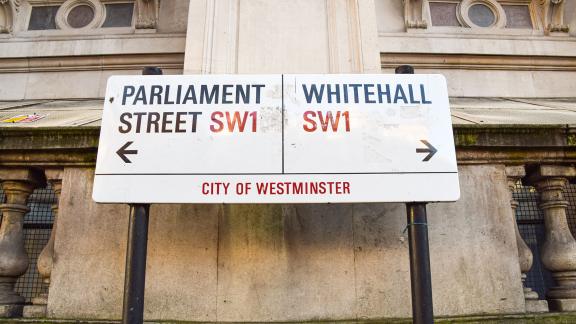Letter to the Chancellor about addressing the elective care backlog

Dear Chancellor of the Exchequer,
I am writing to you on behalf of NHS leaders in England. We last wrote to the government on 11 May to outline what NHS leaders needed to unlock a ‘summer of opportunity’ when it comes to addressing the elective care backlog. We still believe that, under the right circumstances and with sufficient and effective funding, the NHS could make significant inroads to the waiting list challenge this summer and autumn before pressure ramps up again this winter. But time is running out.
As you know, more than 5 million people are now waiting for routine hospital care, with over 400,000 waiting for more than a year. Reducing the backlog will take significant investment, innovation from the sector and support from your government and its national bodies. While the situations are different, the experience of clearing waiting lists in the 2000s is instructive. It took seven years to meet the targets set in 2000 – and significant investment. Last year, the Health Foundation estimated that £7 billion of additional funding is needed in the upcoming Comprehensive Spending Review to tackle the elective backlog, address rising rates of mental ill-health, support primary care to manage increased patient activity and help ease other pressures resulting from coronavirus Given the worsening situation, this is likely an underestimate of the challenge we collectively face.
We want to work with you and HM Treasury in meeting this challenge and want to start by identifying the main barriers to progress that need to be removed.
Financial certainty for the second half of the year
The first and most important barrier impeding our progress is the lack of financial certainty we have for the second half of the year. NHS leaders need urgent clarity on funding and efficiency targets for October onwards. Without this guidance, NHS trusts are unable to make key decisions now on how many staff they can hire and how much they can invest in their elective capacity to reduce the backlog.
For example, trusts are telling us that the current uncertainty means they are unable to plan beyond 12-month fixed term contracts for key skilled professionals, meaning they are more likely to go elsewhere, or not apply at all as the roles are not permanent. Or that they are unable to plan for overseas or large-scale recruitment projects that require additional up-front investment.
Without this certainty, many providers will face the unenviable choice of taking on more staff and making changes to their theatre capacity at significant financial risk, or to choose to stay within their budget but face spiralling waiting lists. This could also create serious bottlenecks to joined-up patient care and the Discharge to Assess programme, which has proved highly effective in safely discharging patients into the community. Caring for Covid patients means other patients need to be safely discharged to other settings, and hospitals are unable to do this effectively without additional discharge to assess funding being continued beyond October when it is due to run out.
Given the huge priority we face in treating as many people as possible, as quickly as possible, we should not place NHS leaders and their teams in this impossible position. The Government confirmed the NHS budget for the first half of this year with just 13 days to go before 6 April. We must avoid a similar scenario heading into the second half of the year. We strongly urge HM Treasury to work with both the Department of Health and Social Care and NHS England and Improvement to issue financial guidance as soon as possible.
Access to capital funding
The second barrier that needs to be addressed is giving NHS leaders quicker access to the vital capital funding they need to make key changes to wards, theatres and other areas of elective capacity.
Trusts need to access capital funding now to expand their elective capacity safely and to make A&E departments large enough for social distancing. They need to invest in facilities that will make them more efficient and improve patient care, such as community diagnostic hubs and elective treatment centres, and to make their wards Covid secure. All of this will be vital as we prepare for the expected flu surge this winter.
But we are consistently hearing from trust leaders that they are not able to access the capital funding they need or that, if they are, it takes too long to receive, with too many bureaucratic hurdles to overcome. This funding holds the key to making the changes our members need to redesign their facilities and we ask that you do all you can to unlock the capital funding pipeline to unlock elective capacity.
I appreciate that capital limits are set as part of the spending review process. That is why access to capital must be front and centre of the Government’s plans at the forthcoming Comprehensive Spending Review. However, in the short term, clear guidance from NHS England and NHS Improvement - backed by HMT Treasury and the Department - on what trusts and local systems must do to have their capital plans approved will help NHS leaders quickly make the vital changes we describe.
We are committed to working collaboratively with you, your department and NHS England and NHS Improvement to do all we can to address the backlog. There is much good work that is already being undertaken to make inroads into the backlog, but progress will be stalled without action on the two factors we have outlined.
As always, we would welcome the opportunity to discuss these concerns and opportunities with you.
Kind regards
Matthew Taylor
Chief Executive


